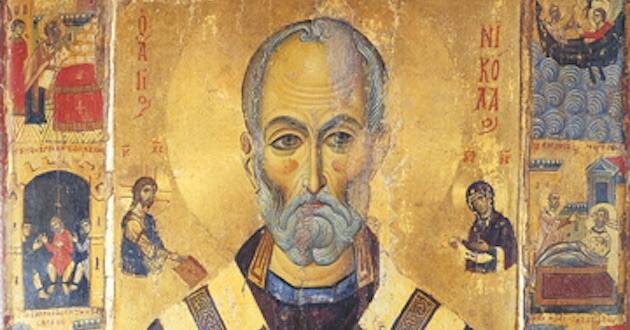Santa Claus isn’t what he used to be. The fourth-century Christian saint has been reduced to a fat guy in a red coat that talks to reindeer. About the only accurate element is his white beard, a description passed down for 15 centuries. It’s an image that every little boy and girl, at least in North America, is familiar with but what’s the truth about the man who survived persecution as he spread the gospel and served the poor?
Psychologist and author Wayne A. Van Der Wal is shedding some light on the history of the real-life Saint Nicholas, better known as Santa Claus, around the globe.
Van Der Wal says he’s was frustrated with how materialistic the celebration of Christmas have become.
“I had been frustrated with the materialism of Christmas for a long time,” Van Der Wal said. “I desired to make Christmas more meaningful for my children and me, so when I started researching more about the Santa Claus, St. Nick connection, I discovered wow, not only was he a real person, but he had a fascinating life story.”
Van Der Wal talks about his new appreciation for the Christmas character in his latest book, The Gospel of Santa Claus: Inspired by the True Story of Saint Nicholas.
The author spent seven years researching and writing the book and he says it transformed the way he and his family celebrate Christmas. They now celebrate the birth of Jesus with more family time, fewer material goods, and an emphasis on good deeds.
Van Der Wal notes that as families work to celebrate the birth of Jesus Christ this holiday season, his book will bring more meaning to the faithful, historical Santa Claus.
The Gospel of Santa Claus follows the incredible and mostly unknown history of the third century Saint Nicholas.
Many people around the world relate to the story of Nicolas and persecution because it resonates with millions of Christians currently suffering for their faith. How Nicholas was severely persecuted for his religious faith as he serves the poor and marginalized during the fourth century provides powerful context.
The origin of the St. Nicholas tradition goes back to Bishop Nicholas of Myra in Lycia from Turkey. Little solid historical information is known about Nicholas except that he was Bishop of Myra and died around A.D. 350. He had grown up in a wealthy Christian family but was left an orphan at a young age. As a young man, Nicholas made a pilgrimage to Egypt and the Holy Land (ancient Israel). Following a call into ministry, he was subsequently ordained and spent time at the
Monastery of Holy Zion near Myra later leading a church. According to stnicholascenter.org, “the congregation overwhelmingly elected him bishop, and he became known for his holiness, passion for the gospel, and zeal. He challenged the old gods and paganism at the principal temple in his district (to the god Artemis), and it was said that the evil spirits ‘fled howling before him.'”
Because of Nicholas’ unwavering commitment to evangelism and speaking out against pagan culture, Roman Emporor Diocletian had Nicholas arrested, tortured and thrown in prison. Later, under Emporer Constantine, Nicholas was released, along with countless other Christians. Crowds greeted him upon his release.
Nicholas would later become one of the most beloved, generous, loving, and famous figures in human history.
The historical novel raises important questions about faith in the 21st century and sparks hope. One description given to the book online says it will “reaffirm your faith in God and the human spirit.”
“I heartily endorse The Gospel of Santa Claus! I was blessed to share this book with my grandkids and church family. This book has become a part of our Christmas tradition. I think it will be the same for all who read it!” states Terry Fred, Senior Pastor at Destiny Church Center.
In interviews, Van Der Wal says the entire purpose of the book is to reconnect people with Christ while taking hold of a historical figure that has been caricatured by society and commercials. Santa Claus, or St. Nicholas, shouldn’t be ignored, but rather embraced to share the story of selfless love.
“I would love for people to embrace the season for what it is. Christmas Day is all about the birth of Jesus – God incarnate who came to the world to bring the world back to himself. That’s my wish for everyone to embrace that meaning,” Van Der Wal says.
–Dwight Widaman | Metro Voice
